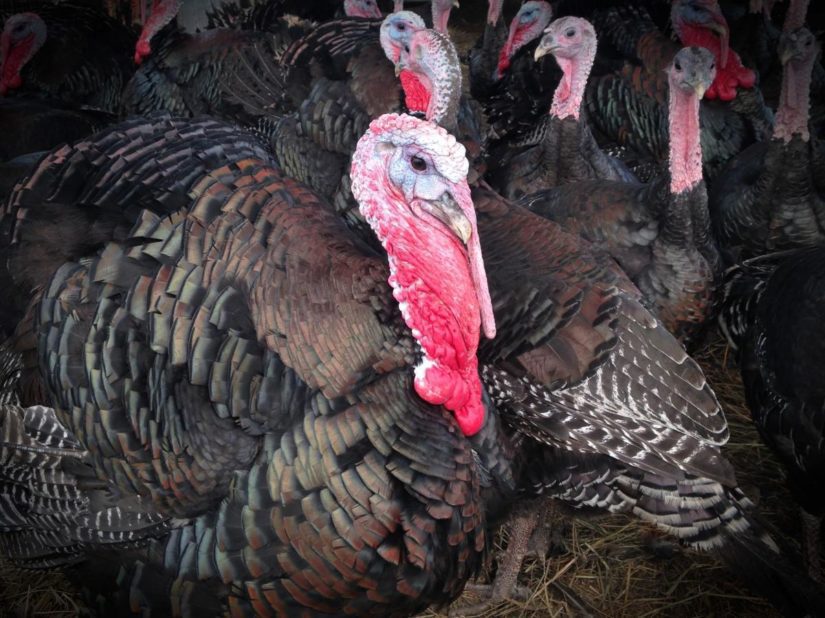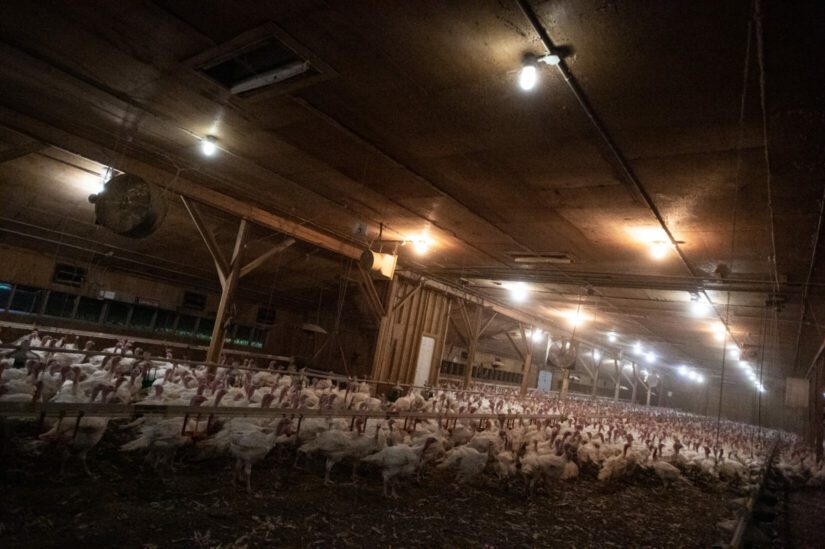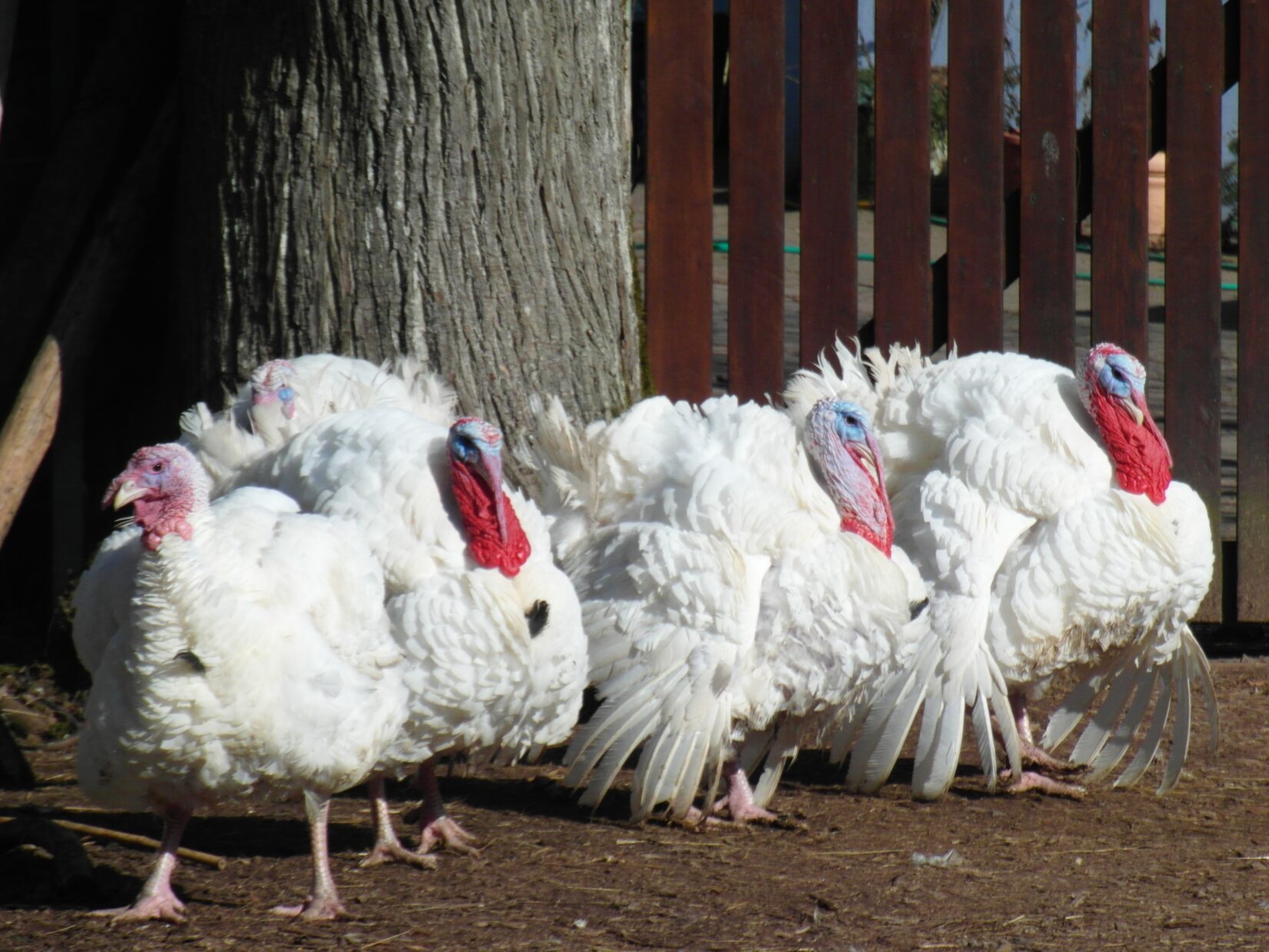In Canada, turkeys are raised on farms for meat. Across the country, there are 513 turkey farms – 61 in British Columbia. B.C. turkey farmers raised 1.9 million birds in 2022. While most turkeys are raised to supply holiday markets (Thanksgiving and Christmas), turkeys are raised and eaten year-round.

Life of a farmed turkey
In B.C. and the rest of Canada, most turkeys are raised indoors in climate-controlled barns. Turkeys are not kept in cages – it is standard practice for turkeys to be raised free-run, meaning they can roam throughout the barn. Some turkey farms may provide access to the outdoors, also known as free-range housing.
The first stage of turkey production begins at the hatchery. Hatcheries produce fertilized eggs that will develop and hatch baby turkeys.
The next stage of production is called brooding. On the day they hatch, poults (young turkeys) are transported from the hatchery to the turkey farm and placed in a brooder barn. In the brooder barn, poults are kept warm and given special care immediately upon their arrival from the hatchery. Poults will stay in the brooder barn for the first six to eight weeks of age.
The final stage of turkey production is the growing cycle. Poults are moved into a growing barn where they will grow until they reach market weight, between 11 and 17 weeks of age. Hens (female turkeys) are typically raised for the whole bird market, while toms (male turkeys) are more likely to be raised for the further processed market.

Welfare issues for farmed turkeys
Space allowance and enrichment
Turkeys need a lot of space to move around and express their natural behaviours, such as foraging and dust bathing. Intensive turkey farms often confine turkeys in crowded barns without enrichments. As a result, birds may become bored, frustrated and even aggressive. A lack of enrichment in the barn and a low space allowance have also been shown to increase the risk of feather pecking. Feather pecking can result in feather and skin damage; if it persists, it can lead to severe injury, cannibalism or even death.
Painful practices
Beak trimming, toe trimming and de-snooding (removal of the fleshy bit covering a turkey’s beak) are painful practices turkeys may experience on Canadian farms. They are typically performed on poults at the hatchery to remove parts that are likely to be injured (snood) or to remove parts that cause injury to other birds (toes, beak). These practices are done without pain medication by hatchery workers and can cause lasting pain to turkeys.
Genetics
Genetic selection of turkeys for fast growth has led to efficient meat production, but at the expense of the turkeys’ welfare. These rapidly growing, top-heavy turkeys can suffer from lameness, bone deformities and other abnormalities that can lead to death.

Support a better life for farmed turkeys
By choosing higher-welfare food products, you can help turkeys lead better lives and support the farmers who care for them. Learn more about shopping for higher-welfare food.
We are always working to build a better future for farmed animals in B.C. and across Canada, but we need your help. Take action for farmed animals today.
Additional resources:
Subscribe to FarmSense
Are you passionate about farmed animal welfare and want to help improve the lives of turkeys? Use this form to sign up for our FarmSense e-newsletter and stay up-to-date on our initiatives!
